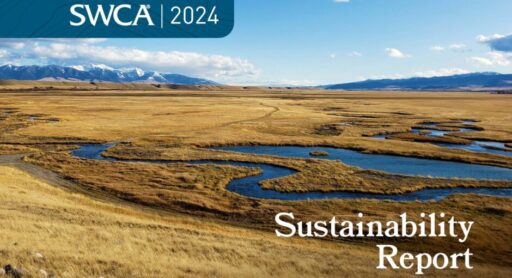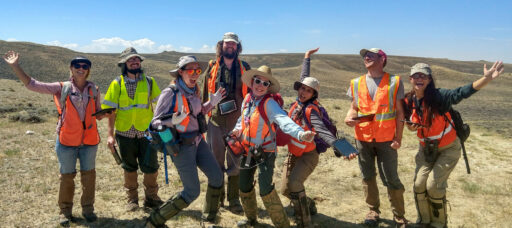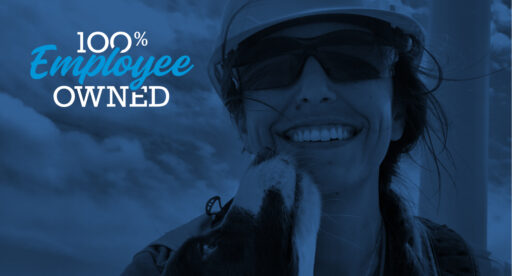2025
Comparably’s Best Company Outlook
* Providing engineering services in these locations through SWCA Environmental Consulting & Engineering, Inc., an affiliate of SWCA.

From the experts we hire, to the clients we partner with, our greatest opportunity for success lies in our ability to bring the best team together for every project.
That’s why:

At SWCA, sustainability means balancing humanity’s social, economic, and environmental needs to provide a healthy planet for future generations.

SWCA employs smart, talented, problem-solvers dedicated to our purpose of preserving natural and cultural resources for tomorrow while enabling projects that benefit people today.

At SWCA, you’re not just an employee. You’re an owner. Everyone you work with has a stake in your success, so your hard work pays off – for the clients, for the company, and for your retirement goals.
Proposed Rule Changes for Endangered Species Act Section 7 Consultations
Amanda Glen is SWCA’s natural resources technical director for biological services and provides strategic guidance on permitting and compliance for matters involving protected wildlife, plants, and habitats. Currently managing a national practice, she has more than 25 years of consulting experience with an emphasis on the Endangered Species Act (ESA) and how compliance with the ESA influences other regulatory programs. Her wealth of experience pertaining to endangered species issues includes research, permitting, consultations, status reviews, and conservation planning. Her experience includes negotiating compliance solutions for critically imperiled species facing potential determinations of jeopardy or adverse modification of designated critical habitats. She has led efforts to delist species no longer requiring the protections of the ESA when supported by sound science, and has been involved in voluntary conservation planning to help preclude the need to list species. Amanda frequently presents at regional and national conferences on matters related to the ESA, including new listings, regulatory and policy changes, and trends in compliance strategies.


The U.S. Fish and Wildlife Service and National Marine Fisheries Service propose to change the process for federal interagency consultation under Section 7 of the Endangered Species Act (ESA). Key among these proposed changes is the addition of compensatory mitigation to minimize the impacts of incidental take. Other proposed changes would revise the definition and application of “effects of the action” and “environmental baseline,” and clarify responsibility for reinitiating consultation.
The addition of compensatory mitigation would, for the first time, add an obligation to mitigate in return for an incidental take statement. The new mitigation provision would give the Services the exclusive ability to prescribe an amount and form of mitigation deemed “reasonable and prudent” for minimizing the impact of incidental take on a listed species. Mitigation has long been an act of voluntary cooperation among project proponents, action agencies, and the Services, with measures tailored to the circumstances of the parties and the needs of the species.
The proposed rule change, if finalized, would make these previously voluntary actions subject to the recently finalized ESA Compensatory Mitigation Policy. While changes would only apply prospectively, meaning that completed consultations would not be subject to any new mitigation provisions, reinitiated consultations may be affected.
The Services are requesting comment on the proposed changes through August 21, 2023. SWCA can help you understand what the rule change might mean for your projects and help you prepare comments for meaningful consideration by the Services.
Read the proposed rule and submit a formal comment at: https://www.federalregister.gov/documents/2023/06/22/2023-13054/endangered-and-threatened-wildlife-and-plants-revision-of-regulations-for-interagency-cooperation
For further information or help preparing comments, contact your SWCA Project Manager.